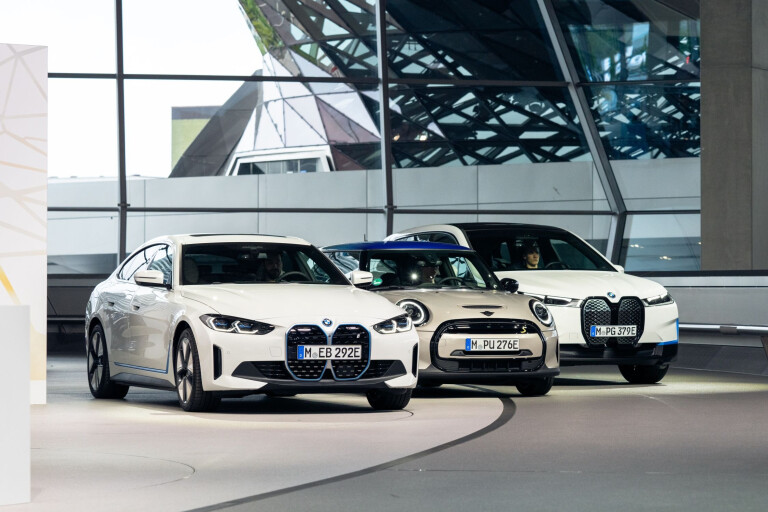
The BMW Group has set itself some big targets to reduce its CO2 emissions over the next decade – including putting 10 million electric vehicles on the road and halving the carbon footprint of its batteries.
At the company’s Annual General Meeting (AGM) on Wednesday, the Bavarian carmaker revealed its new green strategy: Re:Think, Re:Duce, Re:Use, Re:Cycle.
The marque stated that as part of its plan, it is going to avoid its manufacturing process spewing out more than 200 million tonnes of CO2 by 2030 – the equivalent of a city the size of Munich – by reducing its vehicles’ carbon footprint throughout their lifecycles.
To achieve this, everything from raw material extraction, through production and customer use, to end-of-life recycling will use fewer resources.
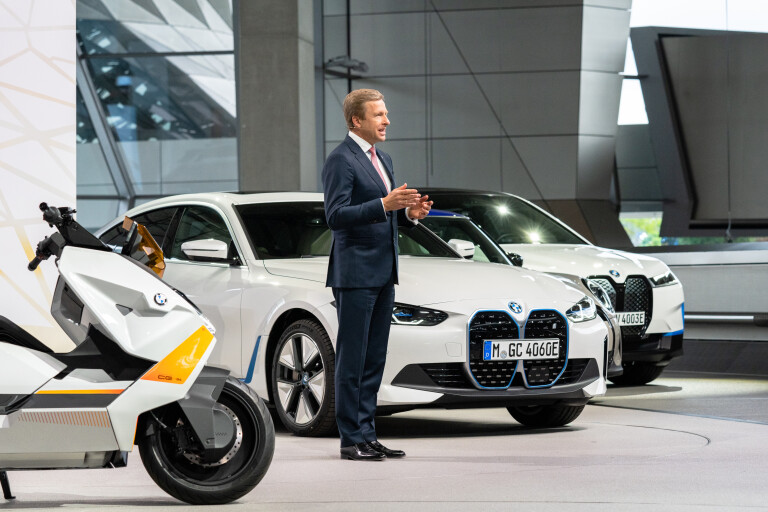
“A climate-friendly car is not created solely by using green power. We must design our vehicles for sustainability from the very first day of development: reducing the amount of material used to manufacture them and, above all, planning for reuse and recycling from the very beginning. In the face of rising raw material prices, this is not just an environmental, but also a business imperative,” said Oliver Zipse, Chairman of the Board of Management of BMW AG.
BMW’s aim is to substantially increase the percentage of secondary material it uses in its cars – such as recycled steel and plastics, as well using solar power in the future to produce aluminium and investing in carbon-free steel production.
From this year the business’s goal is to make its entire production process and locations net carbon neutral. The carmaker has been sourcing 100 per cent green power since the end of 2020 and starting this year is also offsetting its remaining CO2 emissions through various measures, including for its company cars and business trips.
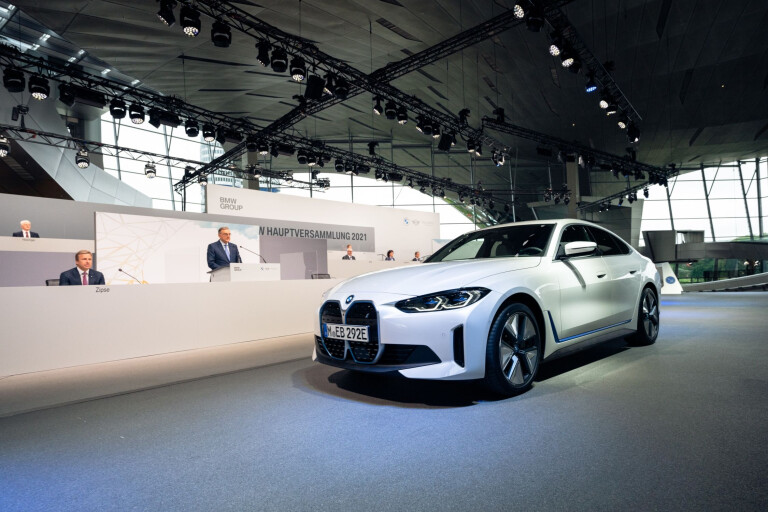
Battery
According to BMW, the process of manufacturing its battery and producing battery cells is extremely energy-intensive. Therefore, with the next generation to be introduced, in what it calls the “Neue Klasse”, the aim is to reduce the carbon footprint to less than half its current value.
One method it will use to achieve its goal will be by using recycled materials in the battery cells and battery as a whole. For example, the housing in the BMW iX already contains up to 30 per cent secondary aluminium and up to 50 per cent secondary nickel in the battery cell.
At the same time, the BMW Group is also limiting its use of critical raw materials in the current generation of battery cells and reducing the amount of cobalt in the cathode material to less than 10 per cent. Additionally, the electric motor no longer requires the use of rare earths.
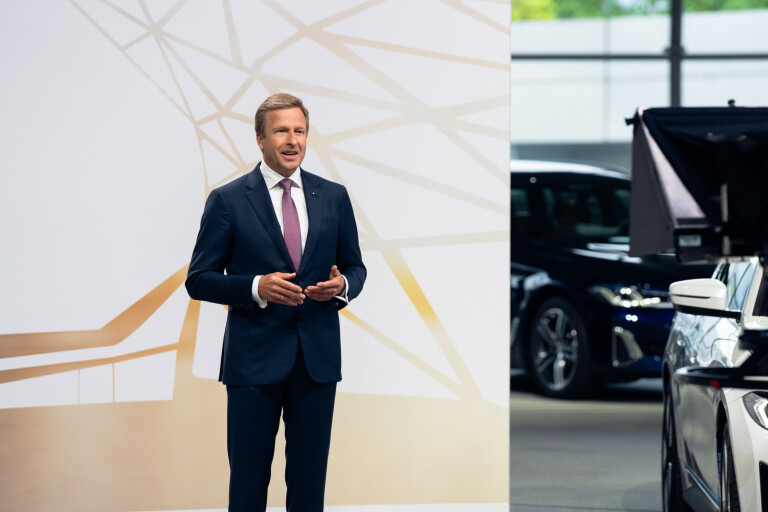
More EVs on the way
In Wednesday’s meeting the company reaffirmed its commitment that at least 50 per cent of global sales will be EVs by 2030. Although headed in the right direction, other car brands including Audi, Jaguar, Volvo and Bentley have gone further pledging to go all-electric by the same date.
Earlier this year rival Audi went even further and said it is ending development of new combustion engines immediately, while in contrast BMW said it wasn’t done with the internal combustion engine just yet.
BMW sees reason to continue its research and development into combustion engines, despite intentions for sub-brand Mini to go electric-only from 2030.
While BMW says it won’t abandon petrol and diesel engine development for now, it’s obvious the brand sees the future as electric.
The German marque will offer five fully-electric models by the end of this year – the BMW i3, the MINI SE and the BMW iX3, as well as its two EV flagships, the BMW iX and the BMW i4.
Up next for the manufacturer will also be fully-electric versions of the high-volume BMW 5 Series, X1, 7 Series, the successor to the MINI Countryman and other models.
By 2023, the BMW Group says it will have at least one fully-electric model on the roads in 90 per cent of its current market segments.
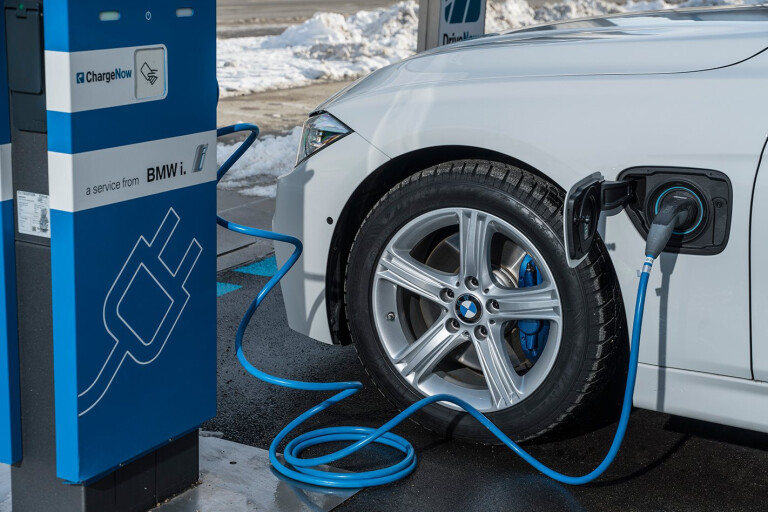
CO2 Emissions and consumption for BMW EVs:
BMW iX: Power consumption in kWh/100km: 22.5-19.5 WLTP. Data is preliminary and based on forecasts.
BMW i3 (120 Ah): Power consumption in kWh/100km combined: 13.1 NEDC, 16.3-15.3 WLTP.
BMW i3s (120 Ah): Power consumption in kWh/100km combined: 14.6-14.0 NEDC, 16.6-16.3 WLTP.
MINI Cooper SE: Power consumption in kWh/100km combined: 16.9-14.9 NEDC, 17.6-15.2 WLTP.
BMW iX3: Power consumption in kWh/100km combined: 17.8-17.5 NEDC, 19.0-18.6 WLTP.
BMW i4: This is a pre-production model, no figures are available yet.
Got a tip-off for a story? Get in touch: kathryn.fisk@aremedia.com.au
COMMENTS